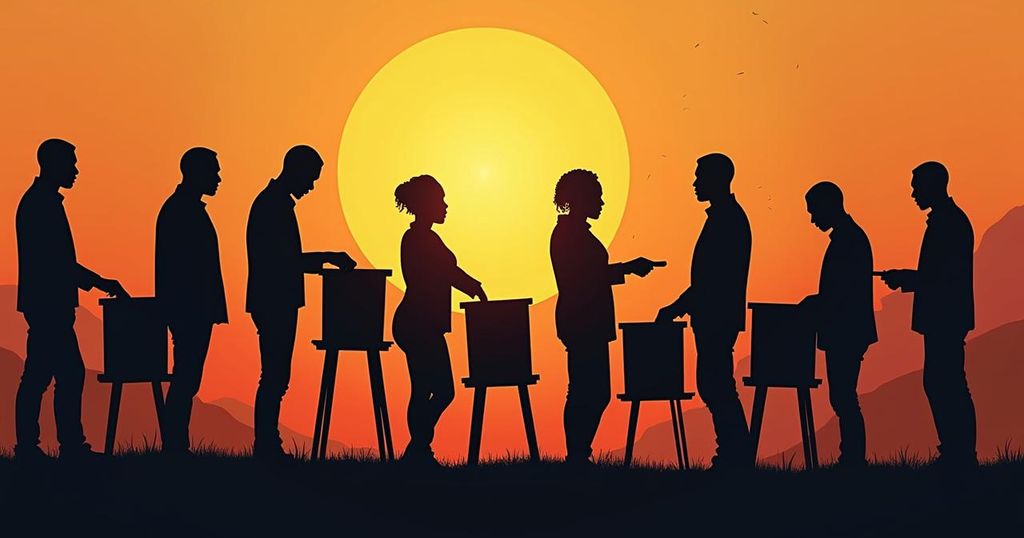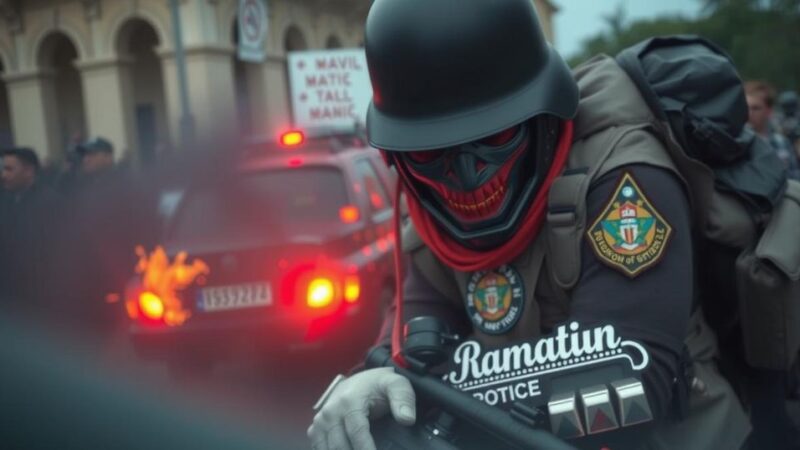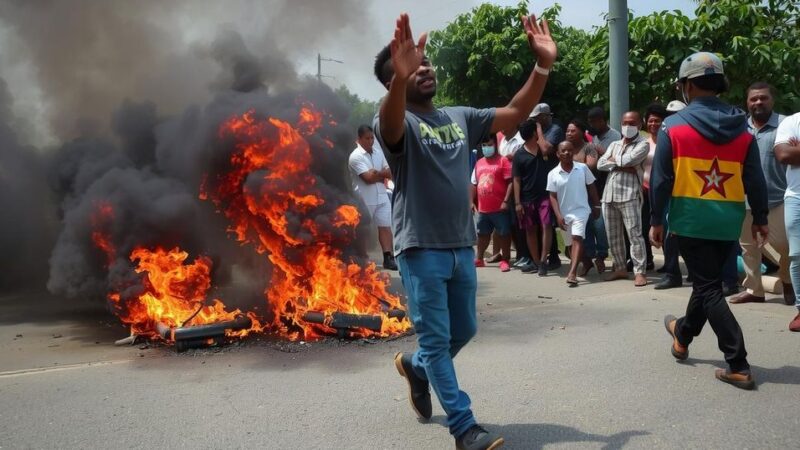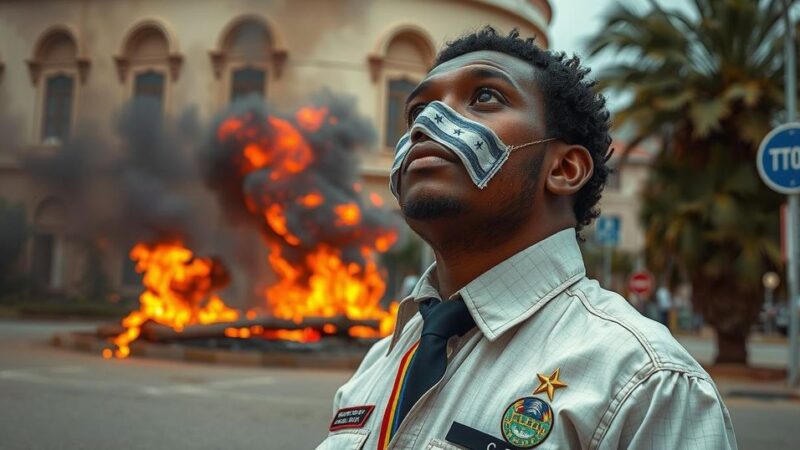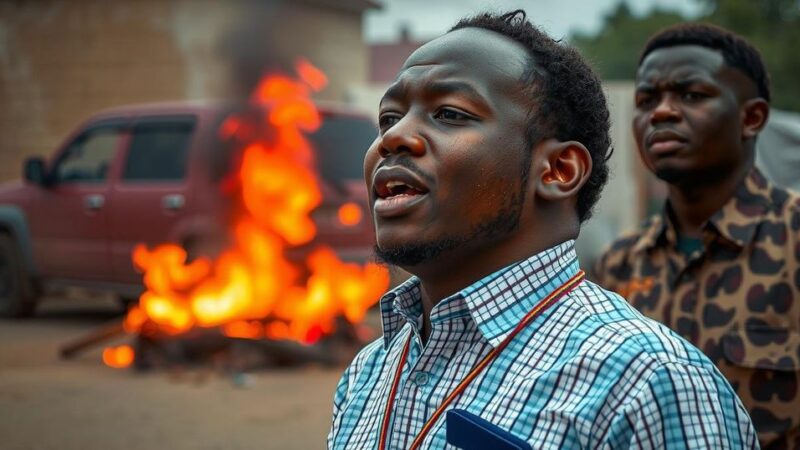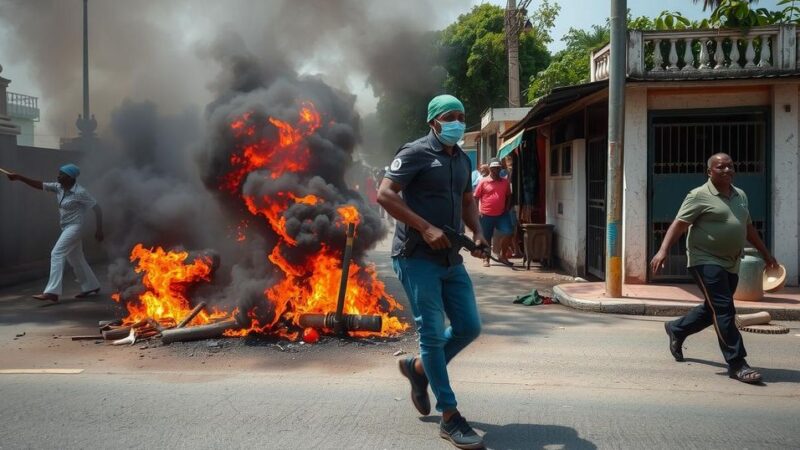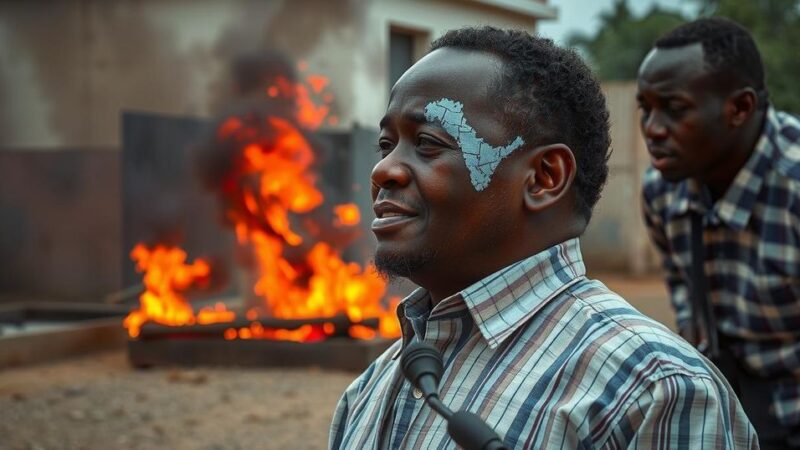Mozambicans are voting in a significant general election with the ruling Frelimo party likely to retain power. Outgoing President Filipe Nyusi, stepping down after two terms, was among the first to vote. His successor, Daniel Chapo, a relatively unknown candidate without significant ties to past corruption, is presenting himself as a change agent. The election is historic as it is the first without a Frelimo candidate who fought in the independence war, reflecting a generational shift. Voter concerns center around economic revitalization amid widespread poverty.
Mozambicans are participating in a significant general election, with expectations that the ruling Frelimo party, which has held power for fifty years, will retain its control. The outgoing President Filipe Nyusi, having reached the two-term limit, was one of the first individuals to cast his vote when polls opened at 07:00 local time (05:00 GMT). The Frelimo party’s candidate, 47-year-old Daniel Chapo, previously a lesser-known individual, is presenting himself as a catalyst for change in this historic election, marking a pivotal moment as he is the first Frelimo candidate not to have fought in the country’s independence war. Chapo was born two years after Mozambique achieved independence from Portugal in 1975, and he is perceived by many as untainted by the party’s previous corruption scandals. He faces competition from independent candidate Venâncio Mondlane, Ossufo Momade who leads the main opposition Renamo party as a former rebel commander, and Lutero Simango from the Mozambique Democratic Movement (MDM). President Nyusi, after voting in the capital city of Maputo, urged voters to remain patient and peaceful throughout the election process, stating, “I would also ask that no group of citizens agitates or threatens others, that everything happens in peace and tranquillity and that we avoid announcing the results ahead of time.” With over 16 million registered voters, there is palpable hope among younger citizens for a better future. Augusto Ndeve Pais, a 22-year-old student waiting to vote, expressed optimism regarding youth participation in the election. The newly elected president will face considerable challenges, including the need to generate economic opportunities and provide jobs for a population where 62% lives in extreme poverty on less than $1.90 a day. Mozambique, still grappling with the aftermath of a civil war that ended in 1992, had anticipated economic growth following the discovery of significant gas deposits in the north. However, the emergence of an Islamist insurgency in Cabo Delgado, which began in 2017, has stalled these lucrative liquefied natural gas projects, despite the deployment of Rwandan and South African troops to combat the jihadists. The counting of votes will commence after polls close at 18:00 local time, with official results expected to be released within two weeks.
The current election in Mozambique is historic due to the changing political landscape, marked by the ruling Frelimo party’s unprecedented move of nominating a presidential candidate who is not a veteran of the independence war, an indication of generational shifts within leadership perspectives. This election also coincides with ongoing economic challenges facing the nation, particularly concerning poverty and halted development projects in the energy sector due to security issues. The 16-year civil war, which concluded in 1992, continues to have lasting effects on the political and economic framework of Mozambique, influencing public sentiment and expectations for change among the electorate.
The general election in Mozambique represents a crucial juncture for the nation as it embarks on a potential new leadership path. The ruling Frelimo party, while likely to maintain power, faces scrutiny regarding its past and future actions. Voter engagement reflects a desire among citizens, particularly the youth, for transformative change amid pressing economic challenges. The outcomes of this election, particularly concerning economic revitalization and stability, remain to be seen as the counting progresses and results emerge in the coming weeks.
Original Source: www.bbc.com

